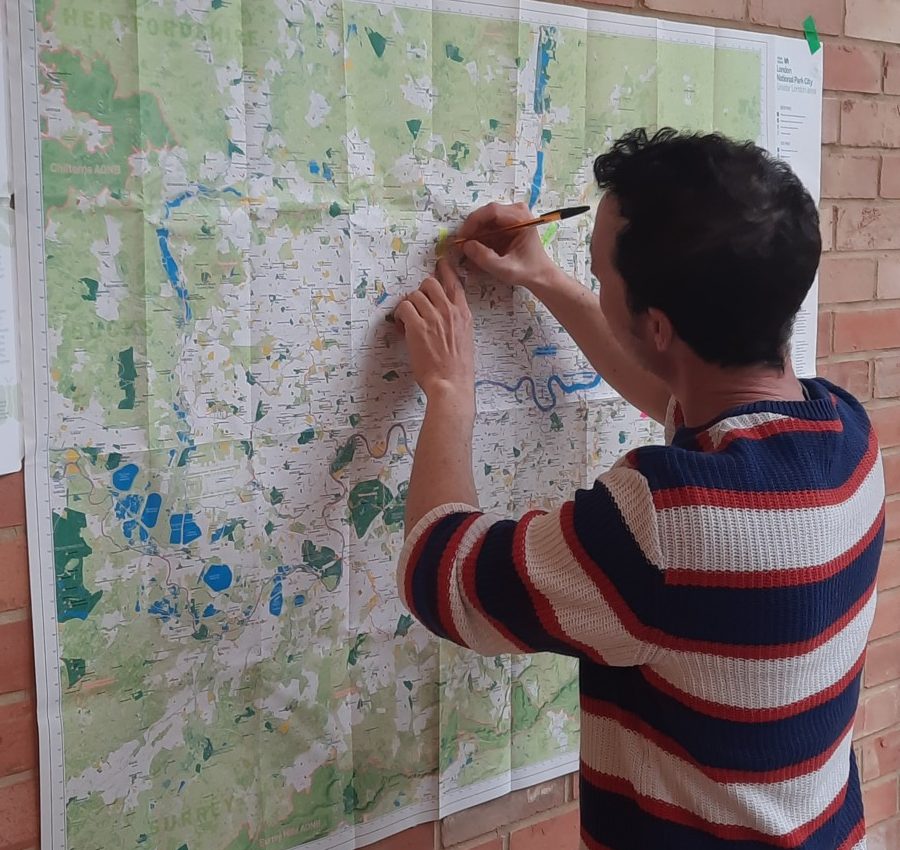Written by:
Over the last year, we’ve been working in collaboration with The Open University through the knowledge exchange research project, Cross-pollination: Growing cross-sector design collaboration in placemaking. The project is funded by the Arts and Humanities Research Council as part of their Place programme, and our research team have been working alongside a number of locally based partners in Glasgow, Wales and London. The project has been exploring how we can scale up collaboration at a local level by providing spaces and mechanisms to enable and empower local people, authorities, organisations, groups and communities to create and incubate collaboration across and between sectors.
Project Background
One of the London-based partners is Becky Lyon, an ecological-artist based in Barnet, North London, who hosted a cross-pollination workshop with her local ecological community in early autumn 2022. You can read Becky’s blog about her experience using cross-pollination here. Part of Becky’s enthusiasm for connecting local people through an ecological lens comes from her role as a London National Park City Ranger.
London National Park City (LNPC) is a grassroots movement aiming to make London greener, healthier and wilder. They support a network of locally based Rangers across the city to connect and support thousands of people leading change in their own neighbourhoods. Through Becky’s workshop, we connected with Ed and Mark from LNPC, who were interested in exploring the cross-pollination approach with a wider group of their Rangers.
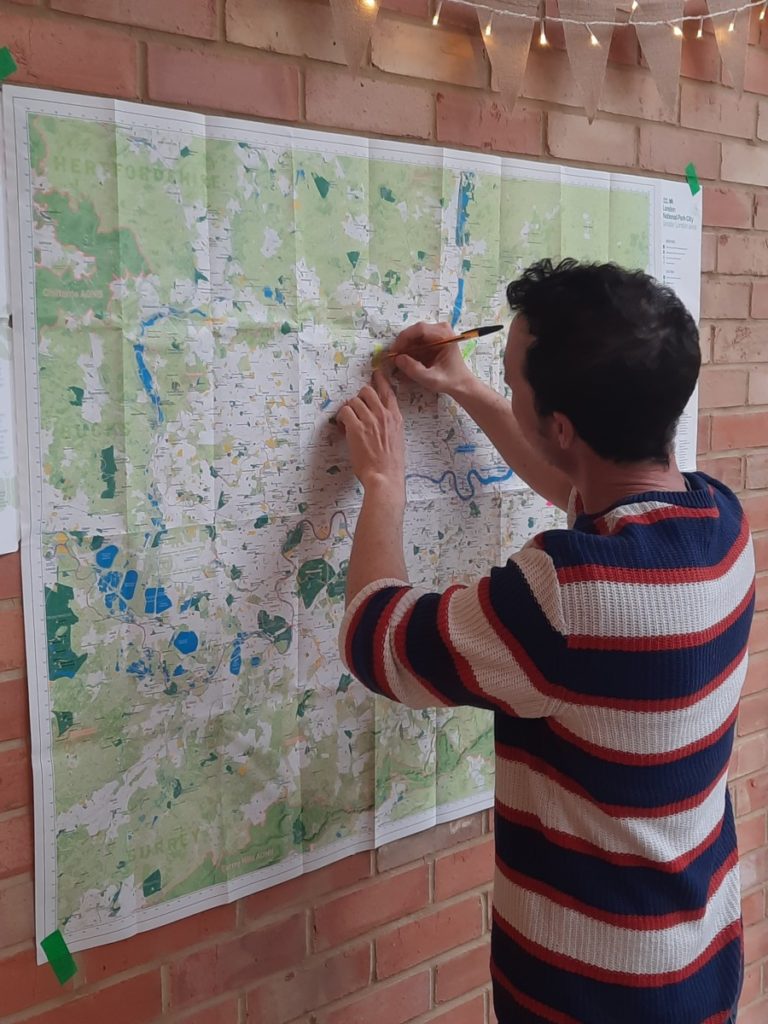
Workshop with LNPC
On Saturday 11 February 2023, the cross-pollination project team met with a group of 10 LNPC Rangers working across Greater London, at Phoenix Garden in Soho. Our afternoon workshop explored the cross-pollination approach, helping the Rangers consider how they could implement the ideas, methods and tools in each of their local areas.
Although many of the Rangers had previously worked together through previous LNPC activities, there were some new connections in the room alongside the research team. In order to break the ice and get to know each other a little better, we started the afternoon by inviting each participant to write 10 words, to introduce themselves and their reasons for being a Ranger.
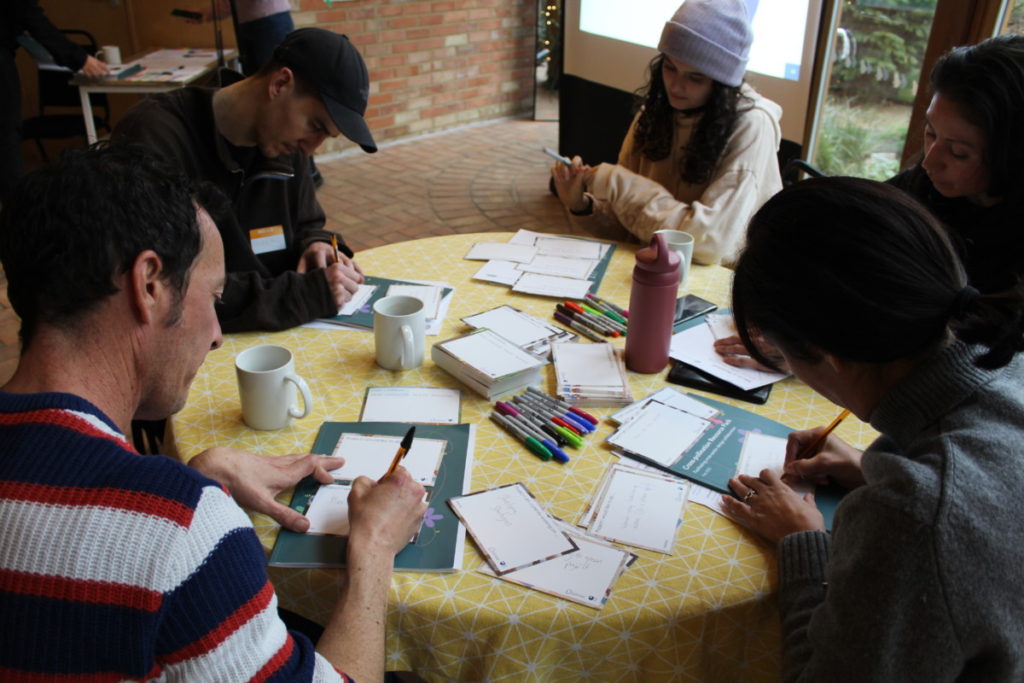
We then split the Rangers into two groups, taking them through the steps of the cross-pollination approach, which uses an asset-based perspective to highlight and value participants’ existing connections and skills. By inviting the Rangers to step into the workshop as active participants, we shared the cross-pollination ideas and approach through doing. Our hope is that by allowing each Ranger to experience cross-pollination, they will then be able to develop and adapt it for their own areas and communities. This also offered an opportunity for this group of Rangers to connect their assets (projects, people and places), and discuss future project ideas. This allowed the Rangers to explore the synergies between each other’s work.
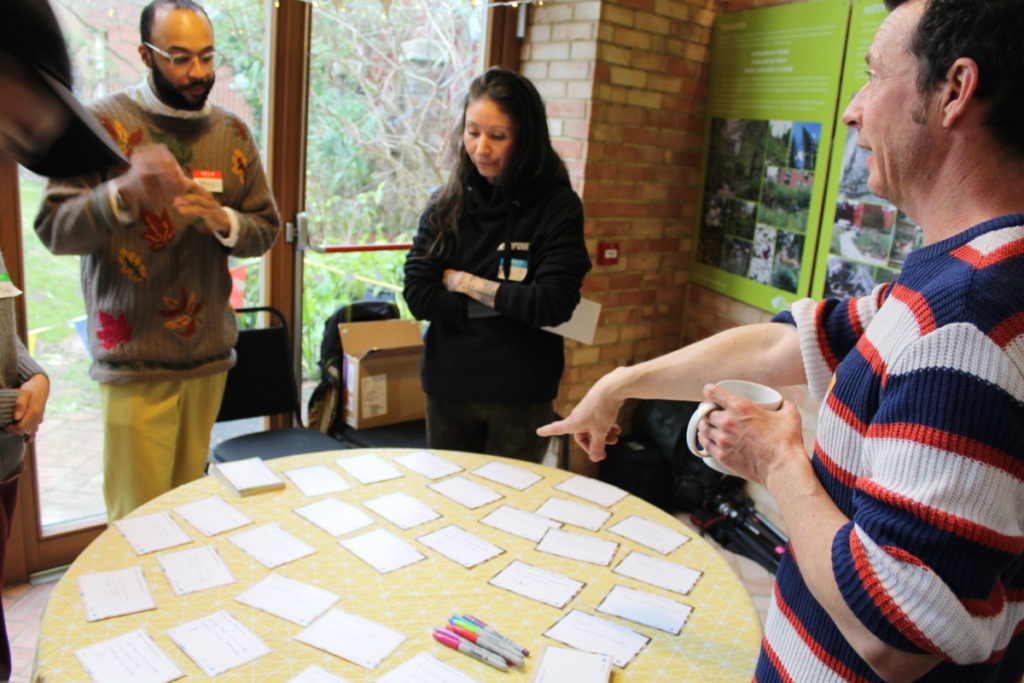
You can read more about cross-pollination on our website here, on the cross-pollination blog here.
Exploring the Cross-pollination Resource
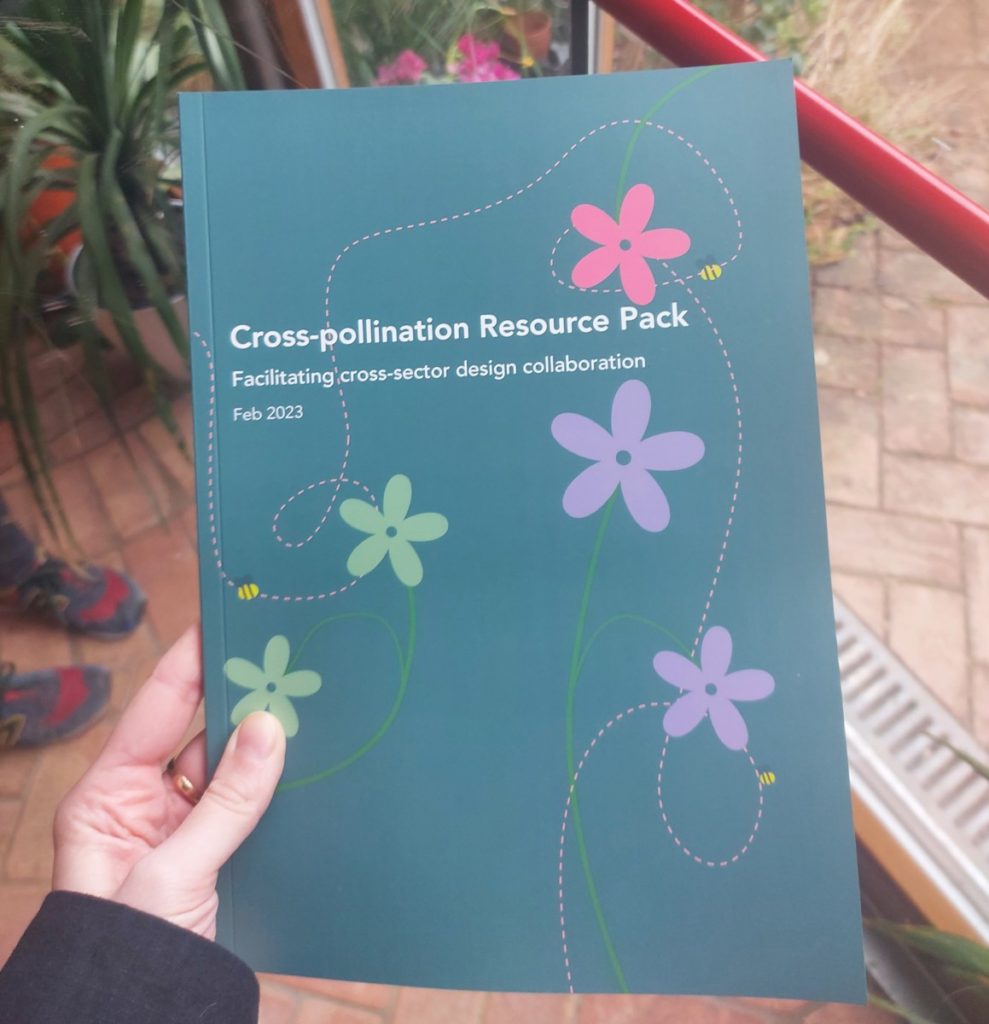
After each of the Ranger groups had shared back their potential future project ideas, we then introduced them to the ‘Cross-pollination Resource’ that has been developed through the Cross-pollination: Growing cross-sector design collaboration in placemaking project over the last year. Whilst the resource was created during this research project, much of the learning and examples featured have been developed over a number of years through several research projects with The Open University.
One of the key objectives from this particular research project was to develop ways to cascade and enable cross-pollination across locations, disciplines and sectors in order to enable inclusive and sustainable placemaking processes and outcomes.
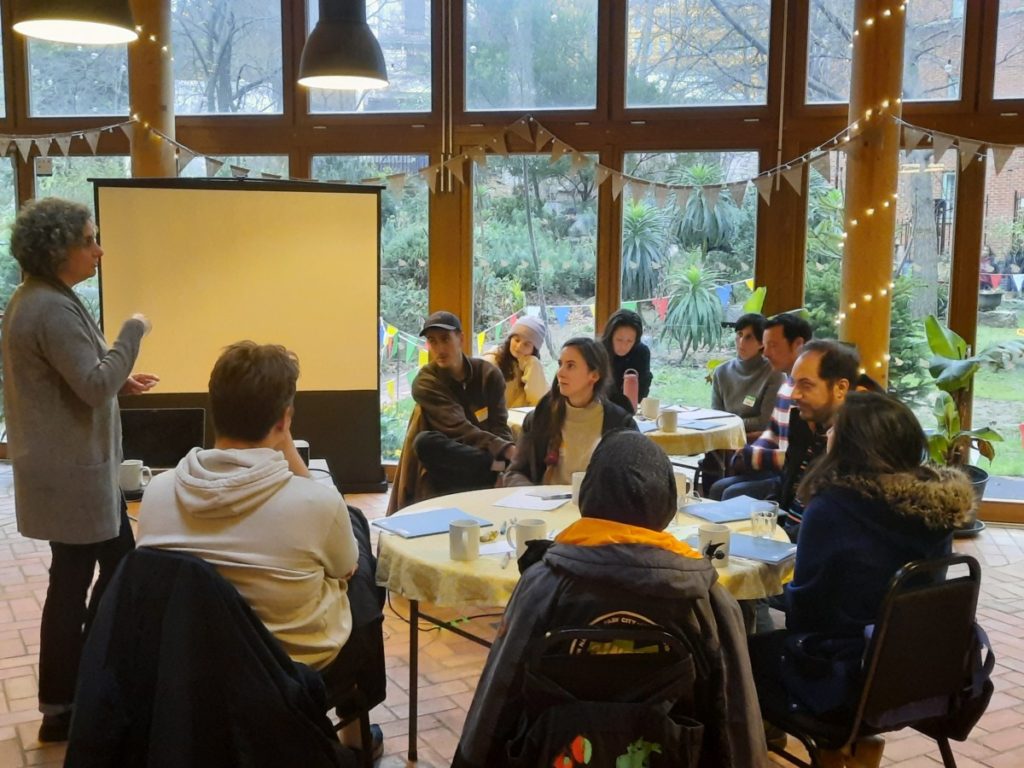
The resource draws on our learning from this project, as well as previous research and knowledge exchange projects that have used cross-pollination in a variety of contexts. The A4 booklet provides a brief introduction and context to cross-pollination, examples of where and how it has been used before, and a practical guide to using the cross-pollination approach in a workshop. You can view and download the resource here.
Action Planning using cross-pollination
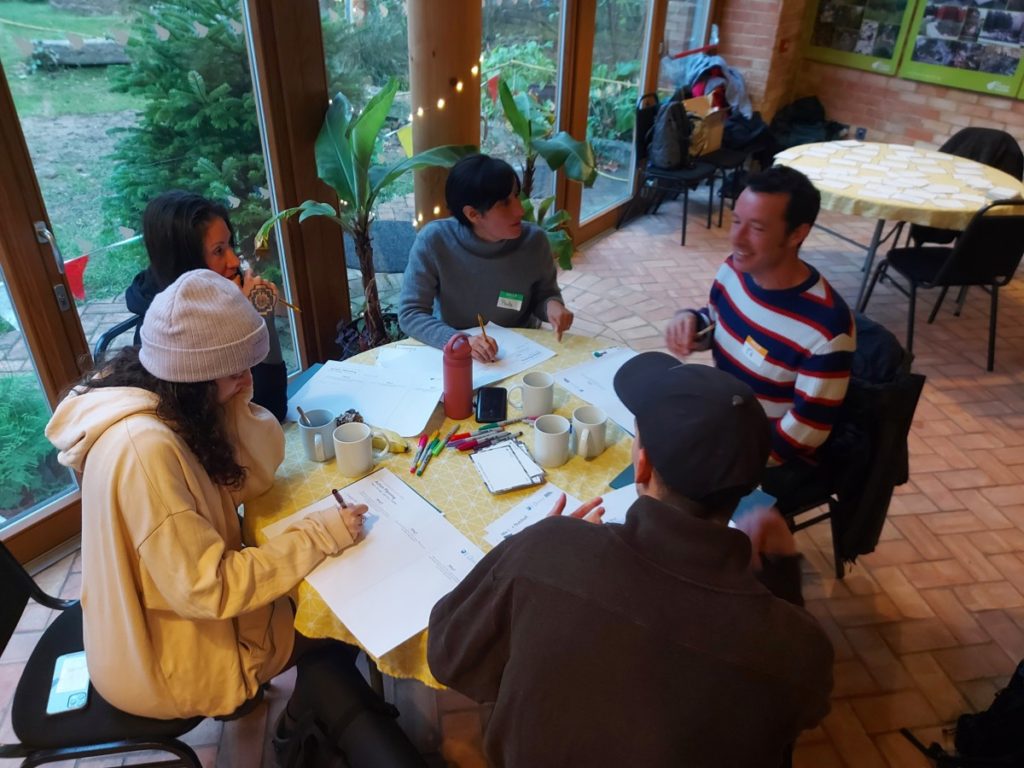
After having experienced cross-pollination in action, and having had a brief exploration of the Cross-pollination Resource, we invited the Rangers to use these ideas and themes to consider how they could apply the approach in their own local areas, or with their communities of interest. We used an action planning sheet, asking them to define ‘what’ (the theme and place their workshop would explore), ‘why’ (this theme is important and why they need their communities voices) and ‘who’ (they need in the room, and how they might be able to bring in a variety of voices).
We hope that by providing Rangers with an introductory workshop the Cross-pollination Resource and a short action planning session, the Rangers were able to leave the workshop feeling equipped and inspired to use the approach in their own localities to generate and enable cross-sector collaboration in placemaking.
Film-maker Emma Crouch joined us for the day at Phoenix Gardens, and you can watch her beautiful capture of the day below, or on Vimeo here:
You can read more about this cross-pollination project on the research project blog here, or on The Glass-House website here.
